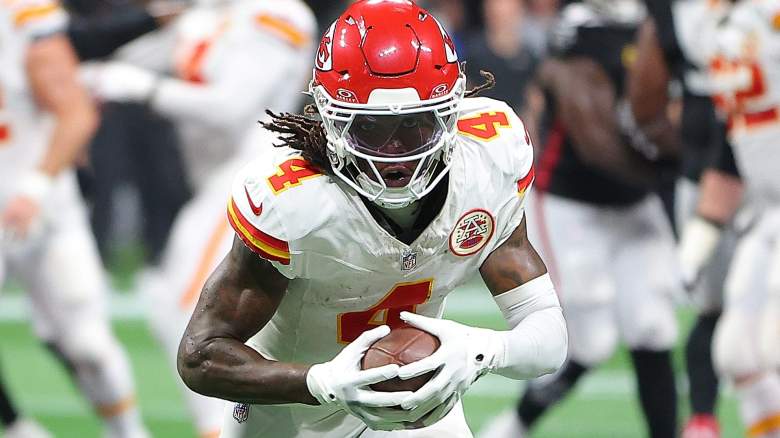In a recent turn of events, Kansas City Chiefs’ head coach Andy Reid has addressed the injury sustained by wide receiver Rashee Rice, emphasizing the importance of leadership and decision-making both on and off the field.
This development has sparked discussions about accountability and the factors contributing to such incidents.
The Incident.
On March 30, 2024, Rashee Rice was involved in a significant car accident in Dallas, Texas. Driving at a reported speed of 119 mph, Rice caused a multi-vehicle collision that resulted in injuries to at least seven individuals.
Following the crash, Rice and his companions left the scene without assisting the injured or notifying authorities. Subsequent investigations led to Rice facing multiple charges, including aggravated assault and collision involving serious bodily injury.

Andy Reid’s Perspective.
Addressing the media, Coach Reid expressed his concerns regarding the incident, highlighting the critical role of leadership and personal responsibility.
He emphasized the need for players to make informed decisions, especially given their public profiles and the expectations placed upon them. Reid stated that while the legal process is ongoing, it’s imperative for Rice to learn from this experience and understand the broader implications of his actions.
Team Dynamics and Leadership.
The Chiefs have cultivated a culture of accountability and mentorship. Veteran players, including quarterback Patrick Mahomes, have taken active roles in guiding younger teammates.
Mahomes, in particular, has been involved in mentoring Rice, aiming to instill a sense of responsibility and professionalism.
He acknowledged the gravity of Rice’s mistake and underscored the importance of personal growth and making better choices in the future.
Analyzing the Root Causes.
While leadership within the team plays a pivotal role in shaping player behavior, it’s essential to consider other contributing factors:
- Personal Accountability: Ultimately, individual choices dictate actions. Rice’s decision to drive at excessive speeds and subsequently flee the scene reflects personal judgment lapses.
- Support Systems: The presence (or absence) of a robust support system can influence decision-making. Ensuring players have access to counseling, mentorship, and resources can mitigate potential pitfalls.
- Organizational Culture: While the Chiefs emphasize accountability, continuous reinforcement of these values is crucial. Regular workshops, open dialogues, and clear consequences can deter undesirable behaviors.
The Broader Implications.
Rice’s incident isn’t isolated in the realm of professional sports. Athletes often face immense pressures, both on and off the field.
The spotlight can sometimes lead to decisions that have far-reaching consequences. It’s a reminder of the delicate balance between personal freedom and professional responsibility.
Moving Forward.
For Rashee Rice, this incident serves as a pivotal moment. Engaging in rehabilitation programs, seeking mentorship, and demonstrating genuine remorse can pave the way for redemption.
For the Chiefs, it’s an opportunity to reassess and bolster their support structures, ensuring that players are equipped to handle the challenges that come with their roles.
Conclusion.
While leadership within the Kansas City Chiefs organization plays a significant role in guiding player behavior, individual accountability remains paramount.
Coach Andy Reid’s comments shed light on the multifaceted nature of such incidents, emphasizing that while mentorship and organizational culture are vital, personal choices ultimately dictate outcomes.
As the situation unfolds, it serves as a poignant reminder of the responsibilities that accompany professional athleticism and the continuous journey of personal growth.



